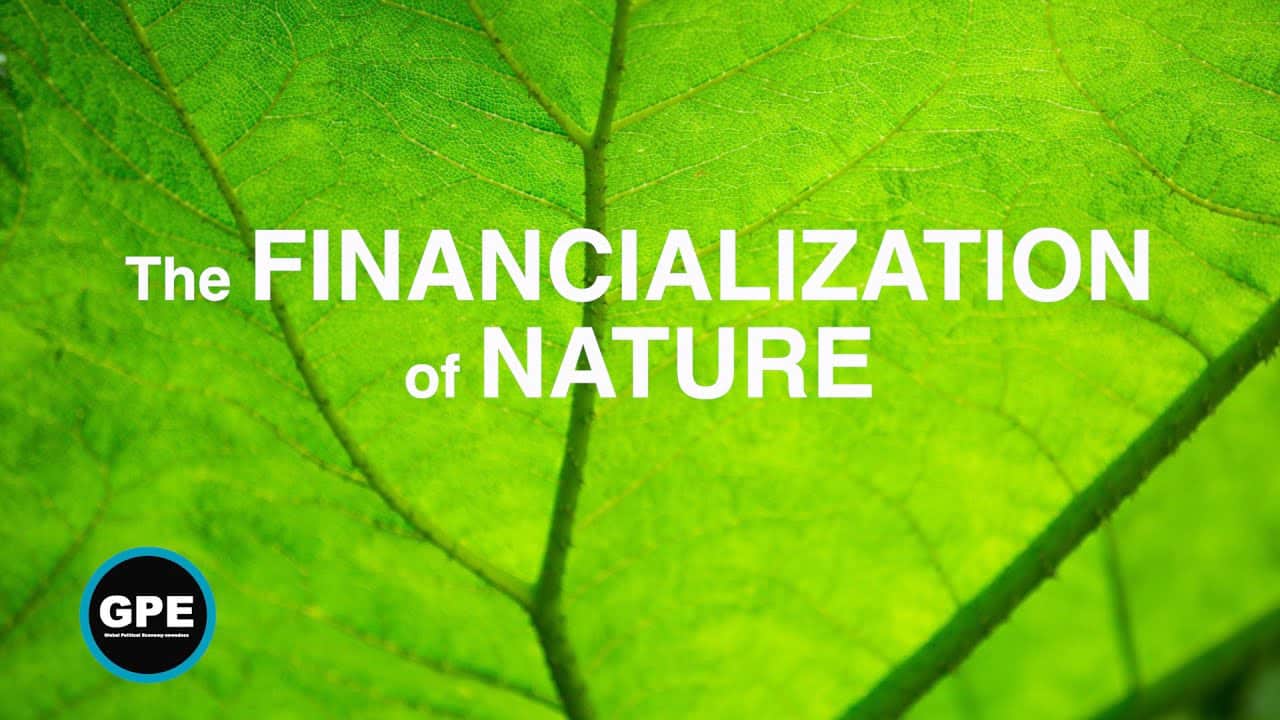

We Need to Talk About the Original Sin of Economics
When you think of original sin and the fall of Adam and Eve, an economics class probably isn’t the first thing that comes to mind. After all, economics is a secular discipline. Or is it?
Maybe not entirely, considering that the earliest economic thinkers had religion very much in mind when they laid down its tenets. Economist A.M.C. Waterman notes that economics was a branch of moral theology in the Christian West until the eighteenth century, while ethics professor Michael S. Northcott holds what we now call “economics” or “political economy” was the province of moral philosophers and theologians until the mid-nineteenth century.
Adam Smith was the son of a devout Presbyterian mother and lived in a world dominated by the Kirk. As economist Paul Oslington notes, his writings, despite a certain amount of personal skepticism of religion, are strewn with religious concepts, such as his view of nature as demonstrating “providential care” and the “wisdom and goodness of God” (Theory of Moral Sentiments). And, as Oslington attests, Smith’s work was often interpreted theologically by early economic enthusiasts like Scottish minister and political economist Thomas Chalmers and Richard Whately, holder of the first chair in economics at a British university. Both saw God’s will in the conversion of self-interested actions into the greatest economic good.
This God, it appears, was a classical economist.
According to Northcott in “Political Theology and Political Economy,” economics developed with a Christian perspective that can be traced to a particular time and place. This view held that human beings, and nature in general, were forever tarnished by the Fall and Original Sin. He points to the Reformation, which swept through Europe in the 1500s, as the catalyst for a widely accepted view of hopelessly sinful humans capable of redemption only through individual faith. The combination of pessimism and individualism, Northcott argues, is the key innovation of this period of Christian theology, which manifests in the work of Thomas Hobbes, who depicted wicked humans who would run amok unless the State protected them by underwriting private property, law enforcement, and contracts.
Economic individualism is born, with the State as its guarantor.
The influence of Christianity on the development of capitalism and economic thinking was memorably examined by Max Weber in The Protestant Ethic and the Spirit of Capitalism (1904). Weber homed in on the fact that Protestants, especially the Calvinist variety, believed that a person’s place in heaven was already decided and no amount of praying and almsgiving would change it. With this bleak picture in mind, Calvinists turned their efforts to work in the secular world, imagining that God’s favor could be discovered in piles of money.
Weber also saw monasticism playing a fundamental role in the development of economics and economic practices, observing that monks, trained in methodical, self-denying habits, promulgated the idea that God wanted you to stay occupied and find yourself a “calling.” As this view influenced the secular world, many people, especially Calvinists, started to look at business as a calling, adopting the monkish perspective that God meant you to carefully save money and reinvest in your enterprise.
Safeguard those piles of money, and for heaven’s sake don’t give them away.
Weber saw these cultural shifts as tending to draw people away from focusing on the commons, the sharing of resources, and yeoman farming (farming associated with a class intermediate between the gentry and the laborers and serfs). They instead turned their attention to joint stock-holding corporations, factories, and the calculation of wages and profits.
Values shifted from cooperation to competition, from shared prosperity to individual gain. The idea was that you may as well focus on your self-interest in this world because you can’t save anybody. Never mind the poor, who deserved their fate and clearly did not have God’s favor. For Northcott, this Reformed theology freed people from responsibilities represented in the old medieval system which, while flawed (for example, by a rigid class system), at least had some elements of redistribution and morally grounded economics in bans on usury, the rise of trade guilds, some local regulation of prices and wages, a negative view of avarice, and a framework of society as a social organism.
Northcott traces a thru-line of the money-focused mindset in John Locke’s emphasis on private property ownership and productivity, along with the idea that you can “own” nature when you use your labor to improve it. From there comes banking and financialization as ways of “redeeming” the land from the Fall. Salvation lay in turning the surplus extracted from improving nature into money. The new moral code: money-making is the ticket to heaven. To sin is to fail to maximize your personal gain.
Northcott observes that early economists like Malthus took the story of the Fall and its aftermath to mean that scarcity was God’s plan – so there was no point in trying to eradicate poverty or promote equality. It wasn’t important whether or not your individual actions were inherently good: what mattered is how much wealth they produced.
Christ may have warned about the accumulation of wealth, but this strain of Christianity clearly favored the rich.
Northcott notes that by the mid-twentieth century, we get what’s known as the Kaldor-Hicks criterion, whereby the actions by individuals, firms, or governments that increase wealth are judged beneficial even if some people are harmed. Lives are priced competitively. This mindset was evident during the Covid pandemic when the vulnerable and the non-affluent were expected to sacrifice themselves for the economy. (Dan Patrick, lieutenant governor of Texas, summed up his view of the lives of America’s senior citizens, explaining, “there are more important things than living.”)
However, other strains of Christianity interpret religion and its relationship to economics quite differently. There have always been Christian thinkers pushing back on the code of competitive individualism and its bleak outlook, like nineteenth-century critic John Ruskin. Ruskin, raised in an Evangelical tradition, became a vociferous critic of classical economic thinking and capitalism. As Northcott observes, Ruskin pictured the Garden of Eden as evidence of the peace, abundance, and sharing of resources that God intended for us. As Ruskin scholar Jeffrey Spear and I have observed, he abhorred the idea of placing a market value on human life and what he termed the false Gospel of Mammonism, which made the pursuit of self-interest a social good and excused – or even promoted – the exploitation of human beings and nature. Ruskin favored the western tradition and values rooted in Scripture and the classics over those of classical economics.
Poet William Wordsworth, raised as an Anglican, was another figure from the Romantic movement known for his critique of capitalism and economic thought. For him, communing with nature was the means through which people could experience God, and that path was open to everyone, rich or poor. He decried the displacements and turmoil ordinary people faced as the Industrial Revolution commenced, as well as the despoilation of nature that came with it. Like Ruskin, he deplored the condition of workers in the market economy. In his 1829 poem “Humanity,” Wordsworth challenges Adam Smith’s most famous book by name:
“For the poor Many, measured out by rules
Fetched with cupidity from heartless schools
That to an Idol, falsely called “the Wealth
Of Nations,” sacrifice a People’s health,
Body and mind and soul”
In the nineteenth century, Christian socialism emerged, first in England, combining the goals of socialism with what they saw as the proper religious and ethical values of Christianity that had been abandoned. This translated into the promotion of cooperation, helping the poor, and fostering goals and practices like cooperatives, trade unions, mutual insurance, and egalitarianism. Northcott points to Pope Leo XIII’s encyclical Rerum Novarum (1891), as the catalyst for Catholic Social Teaching, which advocated more economic equality and the sharing of nature’s goods.
Economic historian and Christian socialist R.H. Tawney, born in 1880, saw human character as inherently social and warned against the focus on self-interest and facing God in isolation. He maintained that for property owners, economic responsibility outweighs privilege. For him, business without ethics led to evil. As Tawney put it, “a religious philosophy, unless it is frankly to abandon nine-tenths of conduct to the powers of darkness, cannot admit the doctrine of a world of business and economic relations self-sufficient and divorced from ethics and religion.”
Christian socialism met a powerful foe in the twentieth century in the form of the Mont Pelerin Society, launched in 1947 and led until 1960 by Friedrich Hayek. This group of influential economists, bankers, and intellectuals promoted the individual freedom of the producer and consumer over common concerns. They set themselves against social projects like the New Deal that intervened in the economy to increase the power of ordinary people. For them, the government should only infrequently take action to reduce inequality or promote the people’s welfare.
We’ve seen, of course, how that has turned out: Extreme inequality, private ownership of public goods, ordinary people disempowered, a global financial meltdown driven by neoliberal deregulation, climate disaster, and a pandemic that burdened the poor but saw the rich getting even richer.
For Christian thinkers like Northcott, the pessimistic individualism that lives on in neoliberalism is the Original Sin of economics – a sin that has proliferated for the last two hundred years, culminating in the precarious situation of humanity of the twenty-first century. For them, as the welfare of people and planet are increasingly threatened, it is this stain that must be removed if we are to save ourselves and, as Wordsworth urges, “come forth into the light of things.”





0 Comments